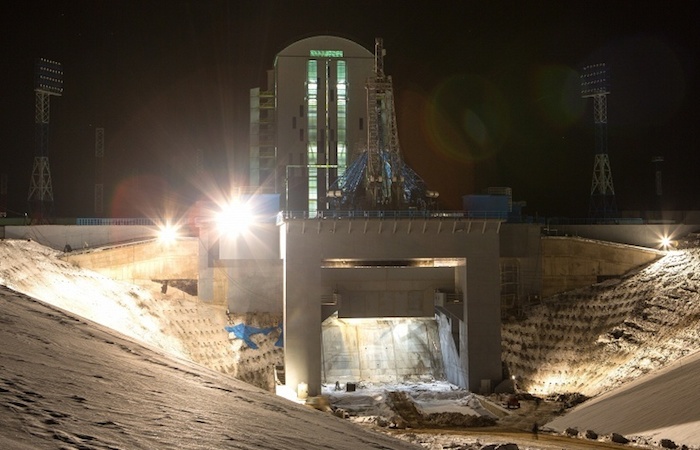.

Foreign components were used the production of Mikhail Lomonosov scientific satellite, CEO of the satellite manufacturer - JSC VNIIEM Research and Production Corporation Leonid Makridenko told reporters on Wednesday.
"The spacecraft is built on the Canopus-B platform. In order not to change the engineering design documentation and, accordingly, not to increase the spacecraft cost, we kept the Canopus components", he said at the satellite’s presentation.
According to him, the company has completed the import substitution measures and all the currently developed spacecraft will be made of Russian units.
The VNIIEM Corporation-manufactured Canopus-B satellite that was launched in July 2012 was party made of components of the UK satellite manufacturer SST. Along with the supply of equipment, the UK side was also responsible for the supply of software and the spacecraft orientation and stabilization systems.
According to previous reports, the Soyuz-2.1a carrier rocket is to place into orbit the Moscow State University’s Mikhail Lomonosov satellite, Russia's first student nanosatellite SamSat-218 that was created in Samara, and Aist-2D small Earth remote sensing satellite. The first launch from the Vostochny cosmodrome in Russia’s Far Eastern Amur region is scheduled for the end of April 2016.
The construction of the Vostochny space launch center in the Amur region began in 2012. It occupies an area of about 700 square km. It is destined to become the first national facility for civilian space launches, ensuring Russia’s full-scale access to outer space and reducing the dependence of the Russian space industry on the Baikonur space center in Kazakhstan. The first liftoff from Vostochny was initially scheduled for December 25, 2015 but reports said it was rescheduled to 2016. Last October Russian President Vladimir Putin inspected the construction site of the Vostochny cosmodrome and criticized delays in the schedule of works and weak control over 130 construction firms engaged in the project.
Quelle: TASS
-
4221 Views
